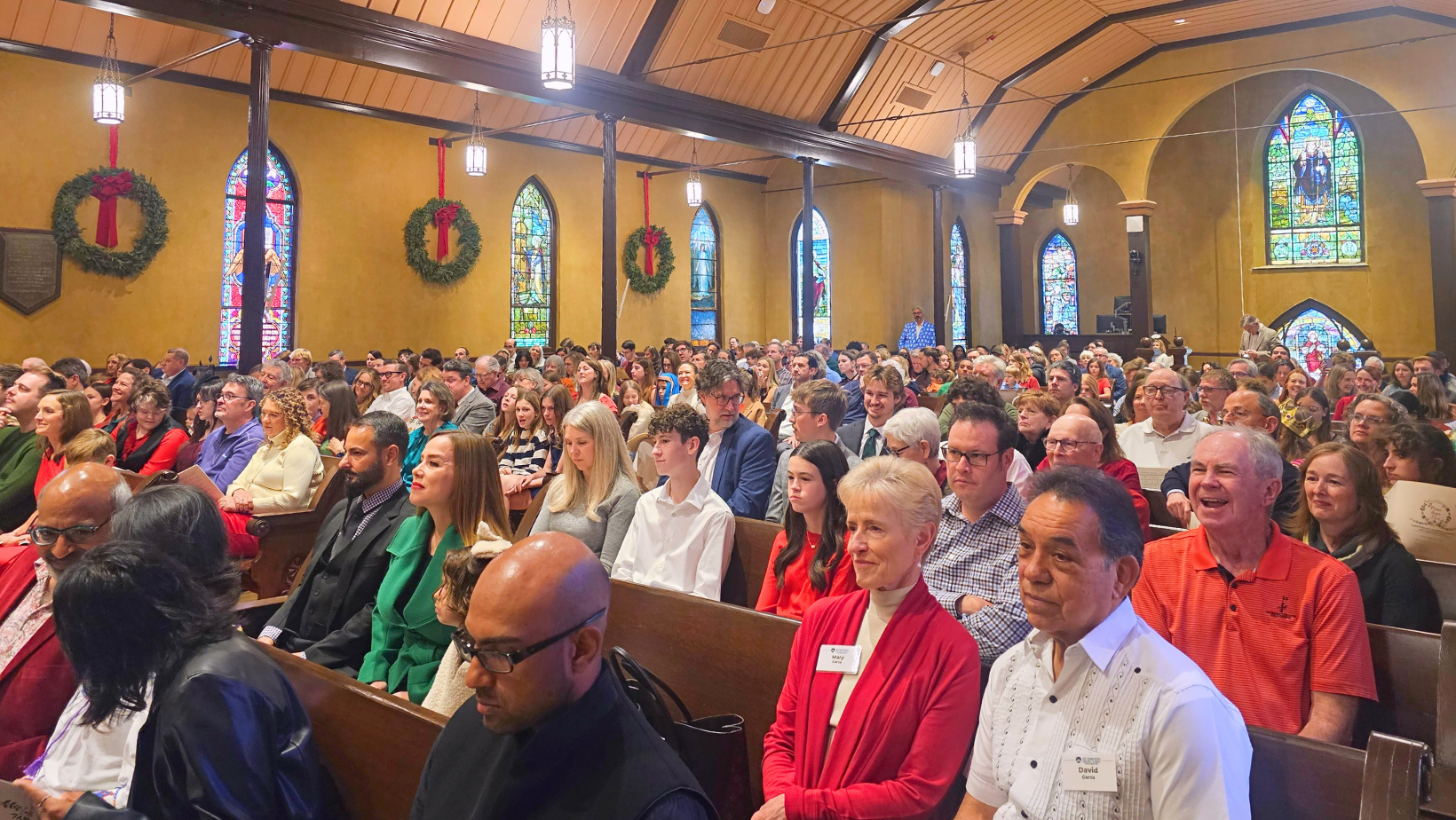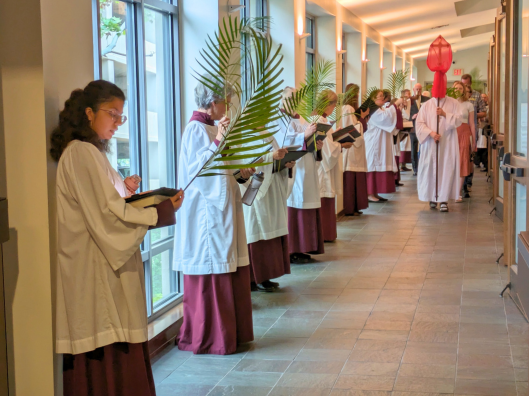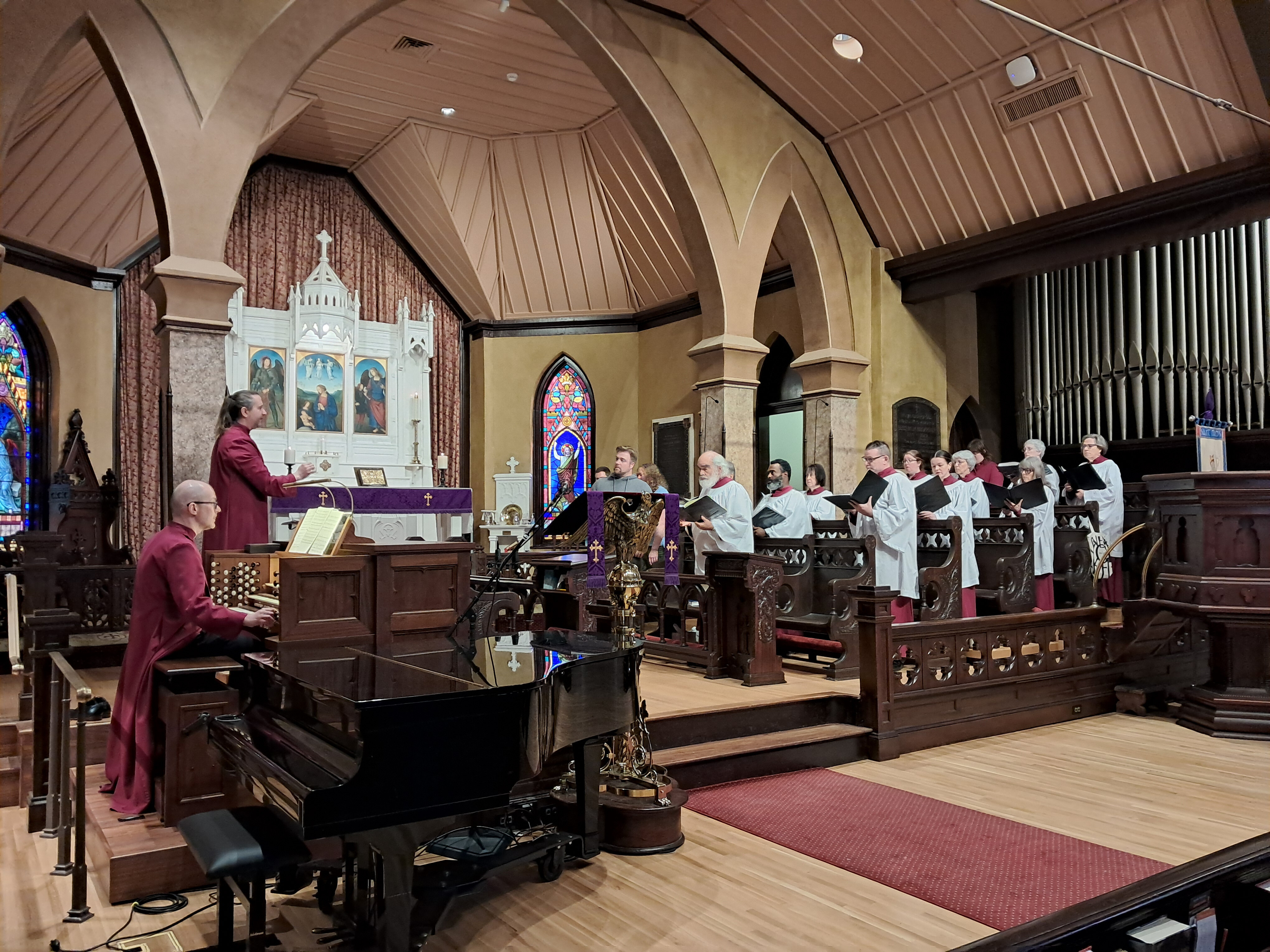
On Christmas morning and the Sunday following, the focus turns from the infant Jesus to the eternal Word. The Prologue to the Gospel according to St John tells us that ‘In the beginning was the Word, and the Word was with God, and the Word was God...’ This Word (Greek Logos, which refers more to speech and the thought behind it than to an individual word) is the manifestation of God’s mind and will, the Divine Utterance carried on the Divine Breath (Spirit) into the physical realm. This Word, St John tells us, is not only the agent of creation, is not only Light and Life, making known God’s glory and grace, but has done so in the flesh, as a mortal among mortals, in the person of Jesus of Nazareth. This tells us something about God – that the Divine, out of love, would deign to become so limited – but also tells us something about creation and about humanity in particular: that it was and is somehow, by God’s grace, found fit to house the Holy. This mystery and hope is what we celebrate at Christmas, and some of our hymnody on these occasions reflects this profound truth, alongside the other, appropriately exuberant, narrative hymns and carols.
‘O come, all ye faithful’ [‘Adeste fideles’, 83], though set at the stable in Bethlehem, draws upon John 1 as well as the Nicene Creed and the Te Deum laudamus (a very early Christian hymn) to explain what we are invited to behold:
God from God,
Light from Light eternal,
lo! he abhors not the Virgin’s womb;
only-begotten
Son of God the Father...
Jesus, to thee be glory given;
Word of the Father,
now in flesh appearing...
This Latin hymn was written probably in 18th-century France; the familiar music was written in roughly the same era by John Wade, among whose manuscripts the earliest source of the text is found.
Our Sequence hymn, ‘Of the Father’s love begotten’ [‘Corde natus ex parentis’, 82], was written by the 4th-century Spanish lawyer, government official, and religious poet Marcus Aurelius Prudentius. A more literal translation of the first line would read ‘Born from the heart of the Parent’, which brings us once again to John 1 (‘It is God the only Son, who is close to the Father’s heart, who has made him known’). The text goes on to speak further of the role of the eternal Word:
Of the Father’s love begotten,
ere the worlds began to be,
he is Alpha and Omega,
he the source, the ending he,
of the things that are, that have been,
and that future years shall see,
evermore and evermore!
The gracious chant melody to which this hymn is now sung dates from the 13th century and was originally associated with a trope (poetic expansion) of the Sanctus which begins ‘Divinum mysterium’, which has given the music its modern title. Our parish now also uses this music to sing the Marian hymn ‘Ye who claim the faith of Jesus’. [268/269].
William Chatterton Dix’s ‘What child is this, who, laid to rest’ [115], sung Christmas Day, also draws upon John 1: ‘Good Christian, fear: for sinners here / the silent Word is pleading’; in the original, this stanza, rather than repeating the text which now serves as a refrain to all three stanzas in the Hymnal, continues with a reference to the Crucifixion and ends ‘Hail, hail the Word made Flesh, the Babe, the Son of Mary!’ Christina Rossetti’s ‘In the bleak mid-winter’ [112], which will be sung on the First Sunday after Christmas, also approaches this mystery with appropriate awe:
Our God, heaven cannot hold him,
nor earth sustain;
heaven and earth shall flee away
when he comes to reign:
in the bleak midwinter
a stable-place sufficed
the Lord God incarnate,
Jesus Christ.
Much of the rest of both of these hymns invite us to reflect and respond to the Incarnation on a personal level: ‘So bring him incense, gold, and myrrh... let loving hearts enthrone him’; ‘What can I give him, poor as I am? ... What I can I give him: give my heart’. Perhaps the Church’s short season of Christmastide, after much of the worldly bustle has subsided, can provide us the necessary room to do so.





Login To Leave Comment